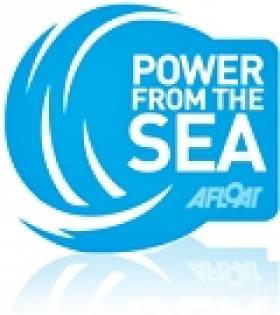Displaying items by tag: Irish Maritime and Research Centre
#energy – A major energy conference entitled "Cork Harbour – Energising the Region" will be held in Cork this week, to discuss the opportunities and challenges in terms of energy, industry and tourism for the Harbour.
Providing more than one third of Ireland's energy requirements, the Harbour region is a vital element of Ireland's energy infrastructure and will be the focus of the the event hosted by Energy Cork and the Irish Maritime and Research Centre (Imerc) on Friday, 12 December 2014.
"From the legacy of a historic trading centre to today's modern port, Cork Harbour has become a world-class model of how industry, energy, tourism and leisure work together in harmony," explains Michael Quirk, Vice Chair of Energy Cork and conference co-ordinator. "A number of international and national speakers will discuss the success of Cork Harbour, as well as highlighting viable opportunities for future development."
A number of international speakers will address the event, including Gordon McIntosh of the Aberdeen City Council who will discuss the potential for Cork to become an oil and gas services hub. Aberdeen has been hugely successful and created enormous employment and wealth from their development as an oil, gas and offshore wind services hub in the UK. Hugo Niesen will discuss the Eharbours project, which may similarly provide new opportunities for Cork Harbour.
Cork Harbour is home to two major power stations, an oil refinery, a number of natural gas fields as well as several wind farms, and world-class marine renewable energy research centres. Cork Harbour's energy cluster will be a focus of the event, along with the region's industry, environment and green route energy opportunities.
"Cork is ideally placed to become a national hub for low-carbon vehicles, such as electric cars and gas powered buses. By implementing a number of policy measures, Cork is already leading the way for other Regions to follow in terms of green routes and energy efficiency in the Harbour," said Ian Kilgallon of Gas Networks Ireland, who will discuss the green route for the Harbour region.
Other speakers include Val Cummins of iMerc, Mike King of Phillips 66, Michael McCarthy of the Port of Cork, John Killeen of the Maritime Institute, John Mullins, Chair of Port of Cork and CEO of Amerenco. Minister for Agriculture, Food, the Marine and Defence, Simon Coveney, T.D. will also deliver the keynote address at the event.
The conference is free to attend, but registration is essential. For more information click here





























































